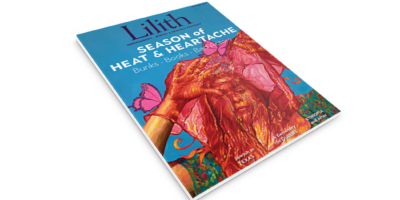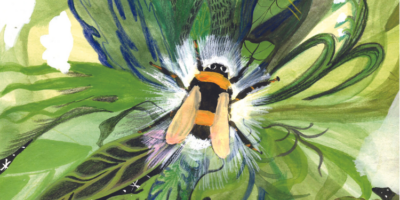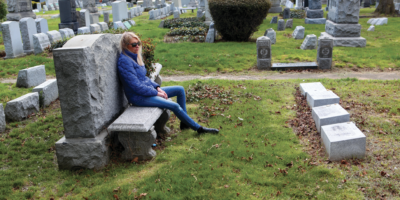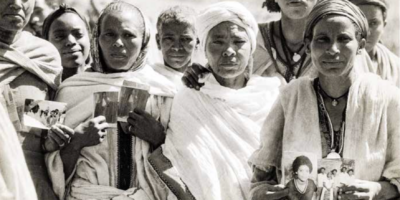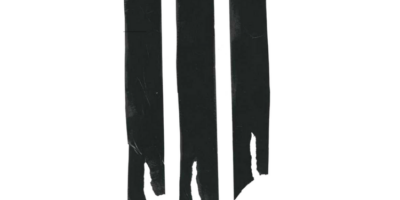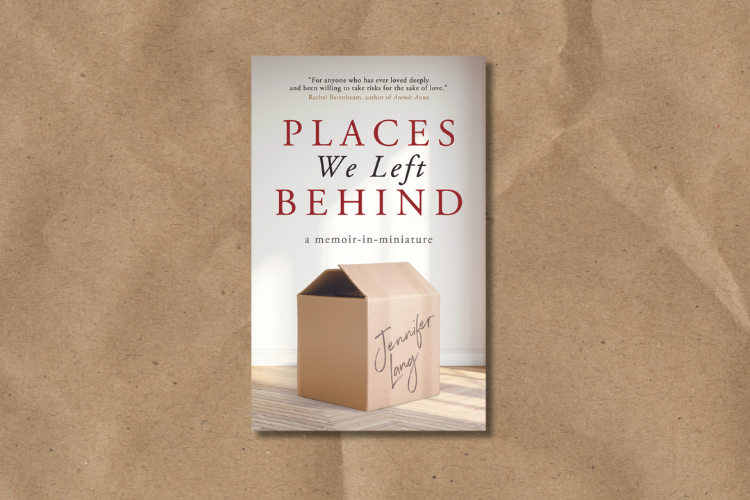
An Unconventional Memoir
Jennifer Lang’s micro-memoir may be slight in size but the story we discover in Places We Left Behind (Vine Leaves Press, 2023, $14.99) is anything but small. Lang’s creative book tackles weighty topics: how do we find our footing when our relationships transport us away from our comfort zones, whether location, (Jewish) observance, family, profession, or lifestyle? It’s difficult to imagine a (Jewish) woman to whom this contradiction between self-sacrifice and self-actualization does not speak.
A native Californian and transplant to Tel Aviv, via France and New York, Lang is not unique in today’s globalized and tech-age-nomadic culture. Her peripatetic life started after she left her hometown in the Bay Area at 19. In intimate scenes that vibrate with life and energy, and with the help of lean, astute language, Lang shows us just how harrowing it can be to survive the negotiations and compromises that accompany marriage and starting a family, not to mention the added challenges when our spouse is a different nationality and level of observance.
What makes Places We Left Behind a revelatory read is the author’s playfulness with form, which in its unconventionally delights and surprises. She uses erasures, scattered words on the page that hold meaning and story, lists, shape-shifting paragraphs and sentences that cleverly engage the reader such as a sudden almost entirely blank page with a few words at the bottom: “Surrender. Like a losing can-
didate in a skewed election, I concede.” This immediately follows the page showing Lang’s difficult realization, in a simple, mathematical calculation in the middle of an otherwise blank page, that they
have spent more than twice as long in the US (her preference) versus in Israel (her husband’s preference). Visually intriguing elements such as the image of a Lady Justice scale, or a page with the heading “Coordinates” showing us the discrepancy of places left behind: “41.0340° N, 73.7629°W vs. 32.1848° N, 34.8713°E” serve as effective tools in the storytelling. We are called to pay attention, to become aware of our (readerly) expectations, and to feel, in a visceral way, the delight of remaining
nimble and open to fluid and unexpected turns in life as well as in reading.
The spaces and arrangements on the pages of Lang’s memoir may seem erratic or puzzling at first, but they are deliberate. The author wants us to feel the unsettling and the interruptions as she does, and
to engage with the meaning of the text as a moving/movable story of marriage and compromise.
An experimental narrative, this “memoir-in-miniature” is a fresh and original contribution to the ongoing and always important conversation about our identities as Jewish women. Lang’s next book, Landed: a yogi’s memoir in pieces and poses (Vine Leaves Press, 2024) will continue the journey; we already know the grounding force yoga plays in her “transient, unsettled, wandering, nomadic, on shaky ground” life. It is no coincidence that the place where the narrator beckons her husband to connect with her is on their living room floor, where a soft carpet holds their communing bodies on the terra firma. “He inches his body toward mine, closing the space between us, and strokes my side, my waist, my hip. Je t’aime. Moi aussi, je t’aime.” At its core, this is a love-letter to the survival of a couple, and to our heroine’s survival as
a woman, wife, and mother. But most of all as herself.
Nina b. Lichtenstein (@VikingJewess) is a writer, teacher, and storyteller who divides her time between Maine and Tel Aviv.

